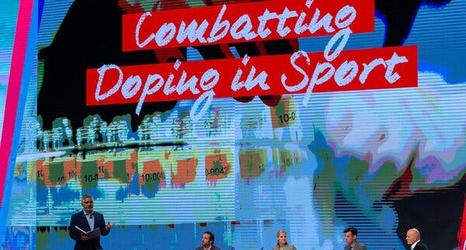Efforts to prevent the use of performance-enhancing drugs ahead of the 2016 Olympics could not have gone much worse.
In the months before the Rio de Janeiro Games, more than 1,900 athletes across 10 key sports — including track and field, weight lifting and cycling — were not tested, a failure that doping officials vowed would not be repeated in the next Olympic cycle.
Yet five years later, the world’s antidoping organizations are struggling to live up to that promise ahead of this summer’s Tokyo Games, in part because the coronavirus pandemic has made it extremely difficult to fix a problem that has persisted for decades: Testing is inconsistent across numerous countries.
